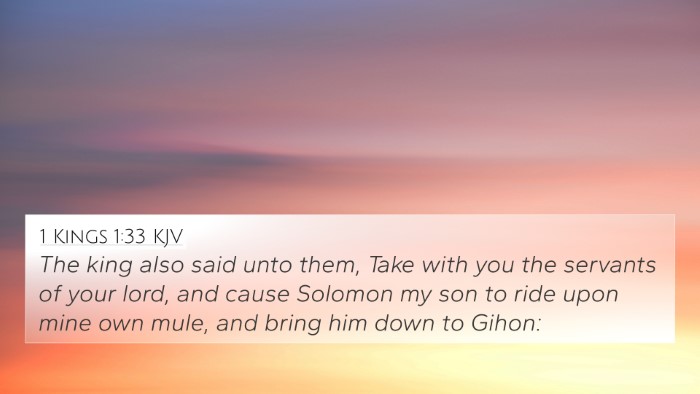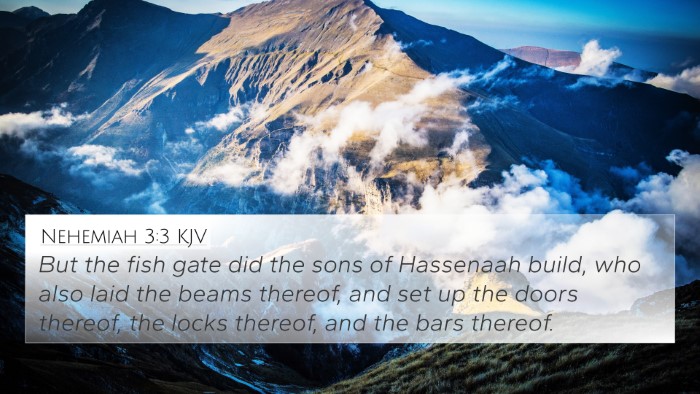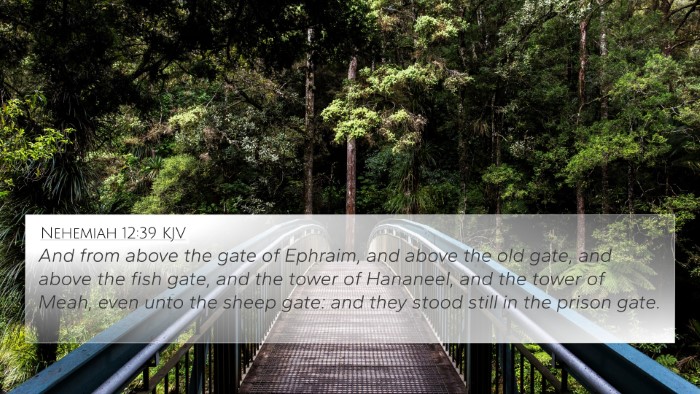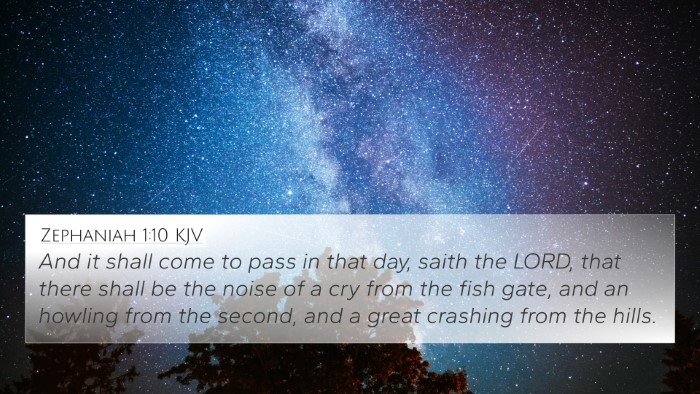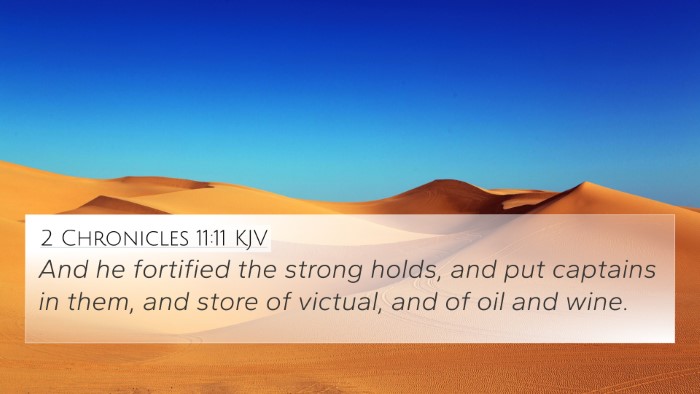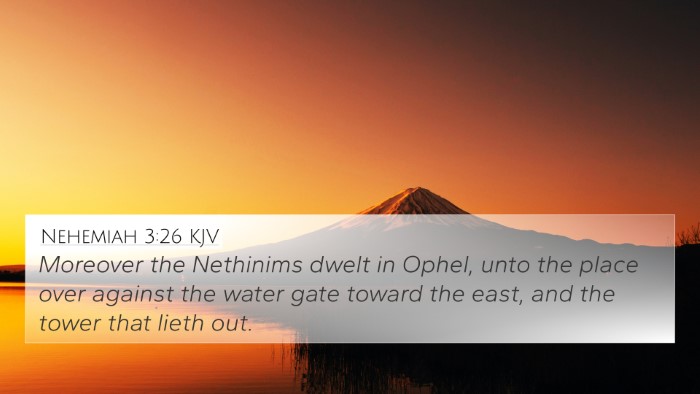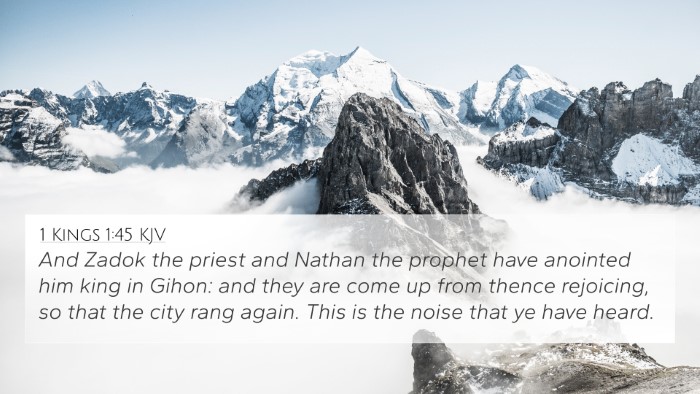Understanding 2 Chronicles 33:14
Overview: In 2 Chronicles 33:14, we find a pivotal moment in the narrative of King Manasseh, a leader of Judah who turns back to God after a period of severe idolatry and sin. This verse demonstrates themes of repentance, restoration, and the consequences of turning from God.
Verse Context
This passage falls within the larger story of Manasseh, one of the most controversial kings of Judah. His reign is marked by both extreme wickedness and a dramatic return to God, making his story rich in lessons about divine forgiveness.
Verse Meaning and Interpretation
In this verse, we see that after Manasseh faces the consequences of his actions, he is moved to seek God. Several public domain commentaries provide valuable insights into this verse:
-
Matthew Henry:
Henry emphasizes the importance of Manasseh's repentance. He notes that even after a life filled with sin, true contrition can lead to God's mercy. Henry encourages believers that no sin is too great to be forgiven through genuine repentance.
-
Albert Barnes:
Barnes points out the grace of God demonstrated through Manasseh's story. Despite the king's preceding wickedness, God allows for redemption. Barnes illustrates that the ultimate goal of God’s discipline is restoration, rather than condemnation.
-
Adam Clarke:
Clarke's commentary discusses the significance of humility in Manasseh's return to God. He relates the king’s actions to the broader narrative of thirst for redemption that creates a deeper trust in God. Clarke notes the parallels between the need for physical and spiritual restoration.
Thematic Elements
The verse encapsulates significant themes such as:
- Repentance and Forgiveness
- The possibility of redemption for all
- The consequences of leading others into sin
- The role of humility in spiritual restoration
Bible Verse Cross-References
To further explore the themes within 2 Chronicles 33:14, we can look at several related passages:
- 2 Kings 21:16: Describes Manasseh's wrongdoings and the bloodshed he caused.
- 2 Chronicles 33:12-13: Discusses Manasseh’s prayer and God’s attentive response, highlighting the importance of sincere prayer.
- Isaiah 1:18: The invitation to reason together, emphasizing God's willingness to forgive sins.
- Romans 5:20: Where sin abounds, grace does much more abound, demonstrating the exceeding nature of God’s grace.
- Joel 2:12-13: A call to return to God with all one’s heart, showing that genuine repentance is met with compassion.
- 1 John 1:9: Declare that if we confess our sins, He is faithful and just to forgive us.
- Psalms 51:17: Highlighting a broken spirit as precious to God, aligning with the humility shown by Manasseh.
Lessons and Applications
From 2 Chronicles 33:14, believers can draw numerous lessons and applications:
- The Power of Repentance: No action is beyond the grace of God. True repentance can restore even those who seem irredeemable.
- God's Mercy: This verse reassures us of God’s nature as a forgiving God, encouraging us to seek Him sincerely, regardless of our past.
- Humility is Key: Like Manasseh, approaching God with a humble heart is vital in our relationship with Him.
- Leadership Responsibility: Manasseh’s story reminds leaders of the profound impact their choices have on others.
Conclusion
2 Chronicles 33:14 serves as a poignant reminder of the boundless grace of God extended to those who repent. Through a careful exploration of cross-references and reflections from notable commentaries, we see a deep-seated theme of hope for restoration within the biblical narrative. This insight encourages believers to seek and embrace God’s mercy and to lead with integrity.



